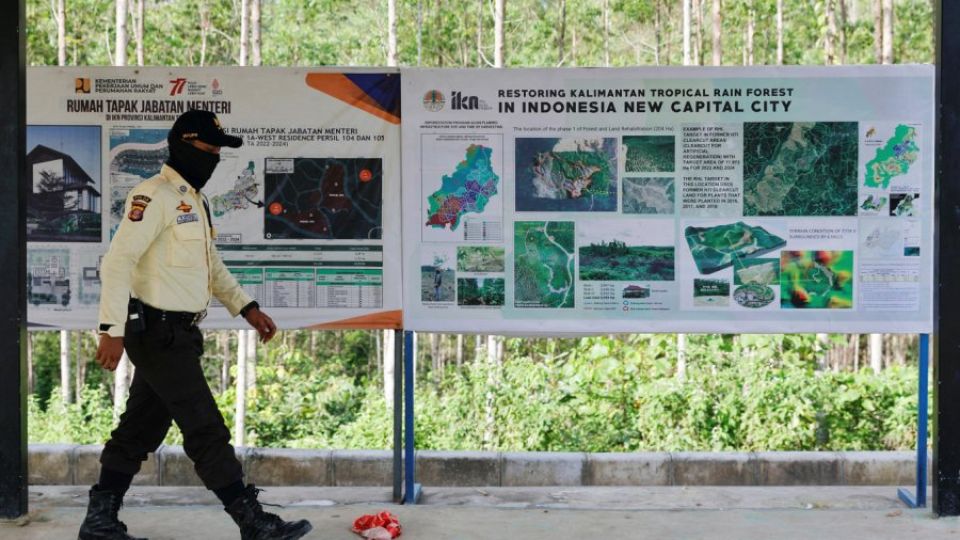May 26, 2023
JAKARTA – One of President Joko “Jokowi” Widodo’s more ambitious programs is to shift Indonesia’s capital from its present site in Jakarta to East Kalimantan on the island of Borneo.
The plan envisages creating a new city, Nusantara. Nearly 1 million government employees, and their families, will move to newly built Nusantara offices and homes. This project recognizes that Jakarta is increasingly at risk from flooding, both from rising sea levels induced by climate change and sinking land, partly a result of unsustainable pumping of water from underground aquifers.
Moving the seat of government away from Java is also a statement that the country belongs to everyone on Indonesia’s more than 18,000 islands, reducing the historically dominant role of Java.
Placing a new capital to draw a country together has many precedents, including Washington, DC, in the United States, Brasilia for Brazil, Naypyidaw for Myanmar and Astana for Kazakhstan. All of these have faced real challenges and controversies.
There are lessons to be drawn from these other efforts.
First of all, as it involves building an entirely new city, it will be expensive, with construction estimated at US$32 billion. It will pressure a fragile physical and socioeconomic environment as land is cleared for new office buildings, homes and the infrastructure needed for a modern national government. The carbon footprint resulting from land clearance and new construction will be huge.
Attempting to accomplish the whole plan over the next few years will greatly complicate matters, requiring massive construction in a place with little experience with the scale of work needed.
In any such endeavor, it is useful to have a Plan B, something that could be adopted if the original Plan A proves too expensive or just cannot be done in a reasonable amount of time. Sometimes a Plan B can be an interim set of actions to be undertaken while waiting for the right conditions for Plan A to be implemented.
In the case of moving Indonesia’s capital away from Jakarta, a Plan B would benefit from the lessons we have learned from the recent COVID-19 pandemic: that we do not have to be in the same city to work together.
Of course, working from home and meeting via WhatsApp is not always as good as being in the same room with other people. But it has some advantages, especially in saving travel time and money. These savings can translate into less pressure on the environment.
I’m not proposing that the national government work from home, but we do not all have to be in the same city or the same island to do our work. Why not disperse the national government ministry by ministry?
Perhaps the Agriculture Ministry could be moved to Medan in Sumatra, the Industry Ministry to Surabaya in East Java, the Environment and Forestry Ministry to Jayapura in Papua and so on.
This horizontal government decentralization would not be costless. But moving slices of the government to localities that have existing construction enterprises and perhaps underutilized commercial and public facilities would ease the financial and environmental impact of relocating large numbers of government employees.
It might also go some way toward involving different groups of people in government. That is, it seems reasonable that if there is a Cooperatives and Small and Medium Enterprises Ministry in your city, you will pay more attention to what the ministry is doing.
The Indonesian government has decided on a plan to move the capital. The intentions are laudatory. But it is a big, complex project and getting it right might take more time and money than anticipated.
Having a Plan B as insurance is simply good governance.
***
The writer is professor of economics at Hult International Business School, San Francisco, the United States and former country director for the Asian Development Bank in Indonesia.


